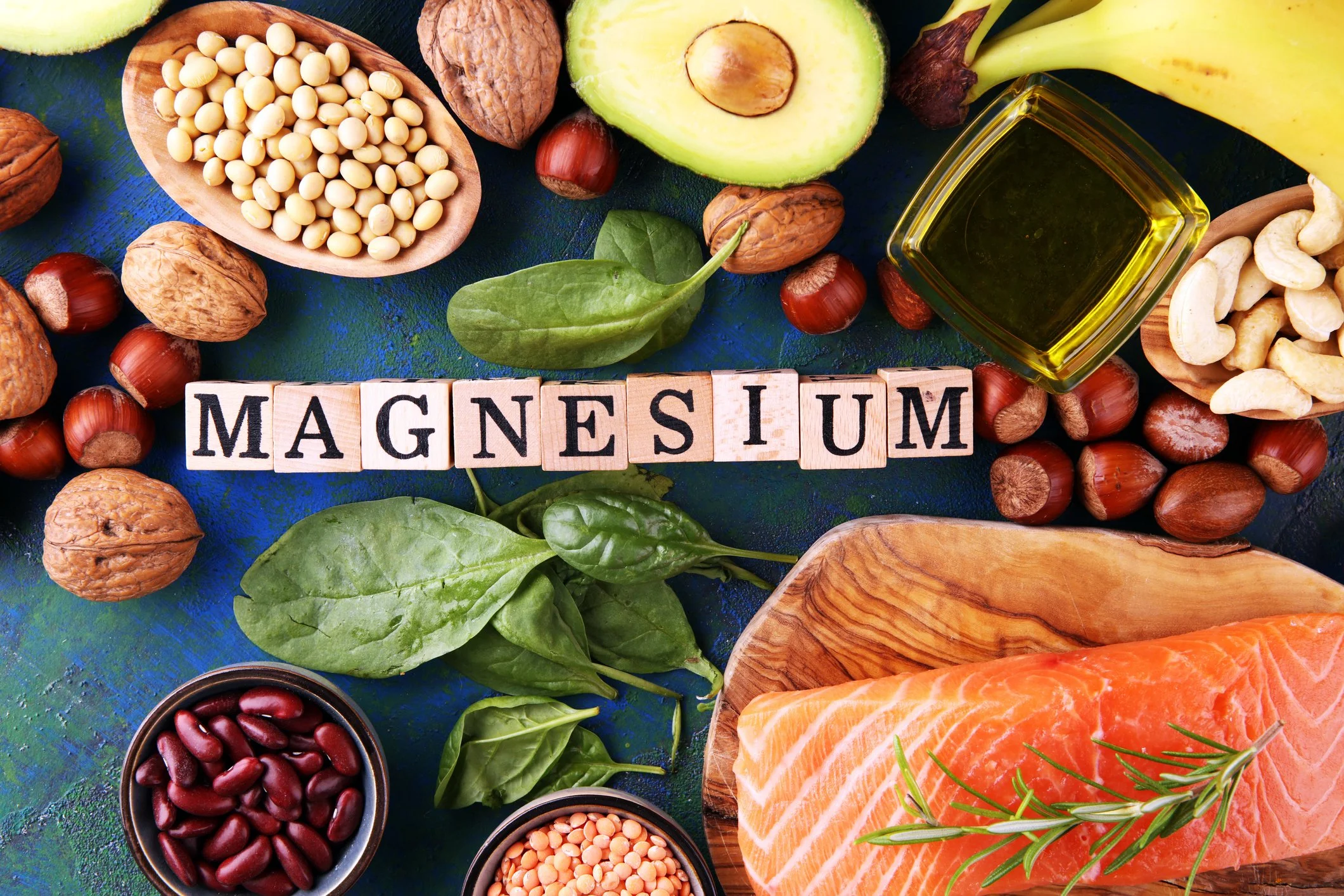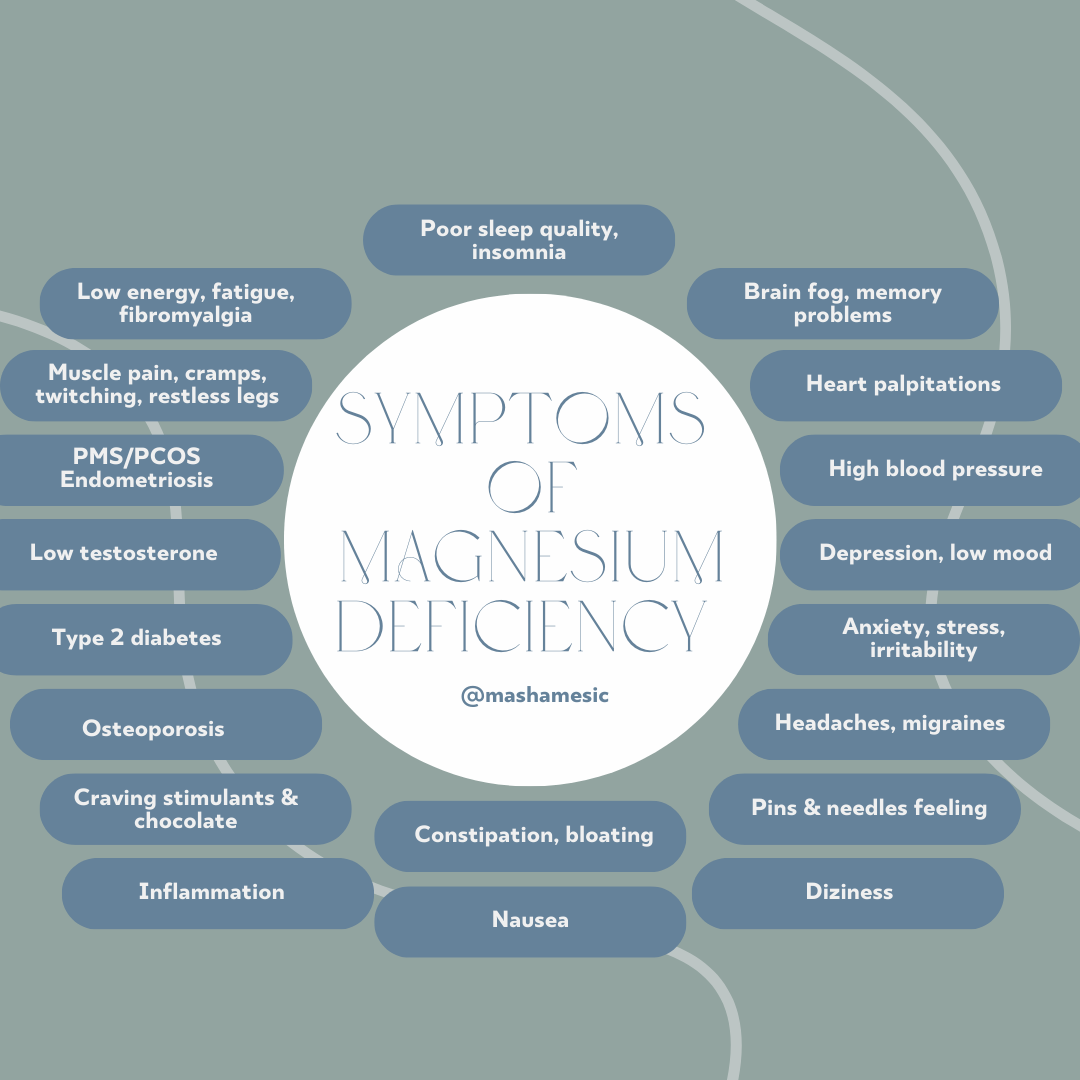Let’s talk about magnesium
Magnesium is a mineral which is essential for more than 300 biochemical reactions in our body including muscles and nerve functions, bone health, mood, regulating blood pressure and blood sugar levels. It is estimated that roughly 50% of people don’t consume enough magnesium.
And from my own experience while working with clients, one can conclude that a large proportion of our population does not meet the necessary daily intake of magnesium. One of the reasons being, poor diet and also the decline of soil and food quality over the years.
Most adults need between 300 mg to 400 mg per day, and that also varies according to age, gender and other factors. Please consult your health practitioner for more guidance.
What are some of the symptoms of magnesium deficiency?
A simple way to test for healthy magnesium levels is via a blood test. However, if you are attuned to your body and its processes you might be able to recognise some of the symptoms of low magnesium levels.
*this list is not exhaustive and should not be used to self-diagnose. Please consult a medical professional.
FREEBIE- guide for better sleep
〰️
FREEBIE- guide for better sleep 〰️
FREE Sleep Guide- click here!
Magnesium is crucial for getting good quality sleep. So, if you need additional support with creating a healthy sleep routine, grab my free guide for better sleep over here.
How to increase my magnesium intake?
Now that you’ve discovered some of the symptoms of magnesium deficiency, here is what you can do about it. You can try to increase magnesium intake by eating the right foods, the problem with that option is that in some cases it might not be sufficient and thus we need to use a supplement.
Here are some foods which are rich in magnesium:
Almonds
Avocado
Brown rice
Black beans
Brazil nuts
Cashews
Chia seeds
Chickpeas
Collard greens
Dark chocolate
Dates
Figs
Garlic
Pecan nuts
Pumpkin seeds
Shrimp
Spinach
Sunflower seeds
Tofu
Swiss chard
Walnuts
If you decide to boost your magnesium intake with a supplement, here are some to consider:
Magnesium Taurate : best for heart health and blood sugar regulation.
Magnesium L-Threonate: has been found to cross the blood-brain barrier which can support magnesium levels in the brain. Used for mood, memory, concentration.
Magnesium glycinate : well absorbed, best for anxiety & stress relief, sleep support, PMS.
Magnesium citrate : one of the most popular forms of magnesium due to its calming effect. Used for constipation and bowel movement (can have a laxative effect).
Magnesium malate : it is well absorbed and is used for muscle soreness, joint & ligament support, aches, pain, exercise & athletic performance.
Magnesium chloride & sulfate: is absorbed through the skin, most beneficial for muscle relaxation and can help with sleep (comes in topical or spray form).
To conclude, magnesium is essential for bone strength, reducing inflammation, activates vitamin D, improves insulin sensitivity, hormonal health, aids digestion, skin care, improves heart health, and promotes brain health.
Are you still unsure about you magnesium intake, or do you suffer from unexplained symptoms? Feel free to get in touch or schedule a call, and let’s discuss further how can I best support you on your health journey.



